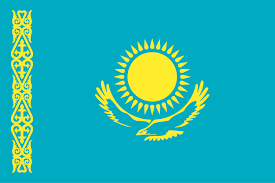Kazakhstan: Emerging Trends and Developments

Introduction
Kazakhstan, the world’s largest landlocked country, situated in Central Asia, has recently garnered global attention due to its rapid economic growth and significant geopolitical positioning. As one of the post-Soviet states, it boasts vast natural resources and a diverse culture. Understanding Kazakhstan’s role in contemporary global affairs is pertinent, especially given the current shifts in international relations, economy, and environmental challenges.
Current Economic Developments
As of late 2023, Kazakhstan’s economy shows promising indicators of resilience and adaptation. The country has actively sought foreign investment, particularly in its oil, gas, and mining sectors. According to the National Bank of Kazakhstan, foreign direct investments (FDI) reached approximately $24 billion in 2022, with projections indicating a further increase in 2023. The government has implemented various reforms aimed at improving the business climate and attracting international businesses.
Geopolitical Significance
Kazakhstan’s strategic location, bordered by Russia to the north and China to the east, makes it a crucial player in the Belt and Road Initiative (BRI). The country has become a pivotal transit hub for trade between Europe and Asia, further enhancing its geopolitical significance. In September, Kazakhstan co-hosted the Central Asia-China Economic Forum, which highlighted the importance of regional cooperation in trade and security.
Social and Environmental Challenges
Despite its advancements, Kazakhstan faces several challenges. Social inequalities remain a pressing issue, with significant portions of the population residing in rural and underdeveloped regions. The government is working on initiatives to address these disparities through targeted social programmes and infrastructure development.
Additionally, environmental issues pose a significant challenge, particularly concerning the Aral Sea’s desiccation and pollution from numerous industrial activities. In response, the Kazakh government has unveiled an ambitious plan to transition to green energy, aiming to increase the share of renewables in its energy portfolio to 50% by 2050.
Conclusion
In conclusion, Kazakhstan is positioning itself as a key player on both the regional and global stage. With its vast natural resources and growing economy, the country is not only attracting significant foreign investments but also playing a critical role in international trade dynamics. However, concerted efforts are needed to address social inequalities and environmental issues that threaten sustainable growth. As Kazakhstan continues to develop, its trajectory will be of significant interest to global observers, as it navigates the complex waters of modern geopolitics and economic challenges.








